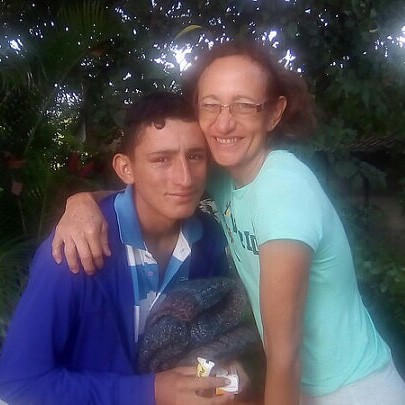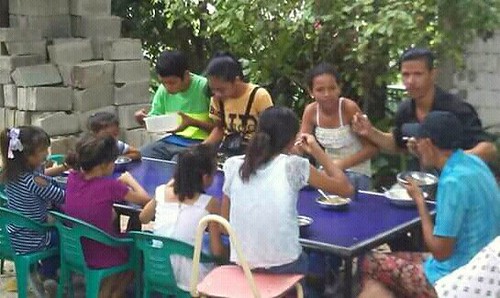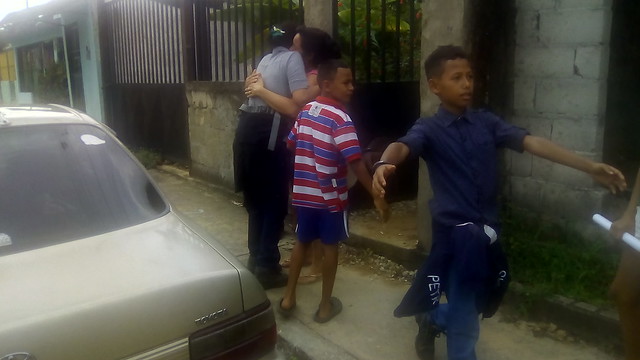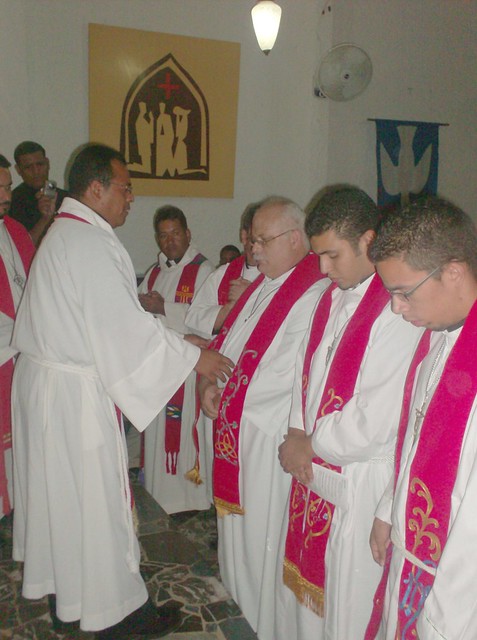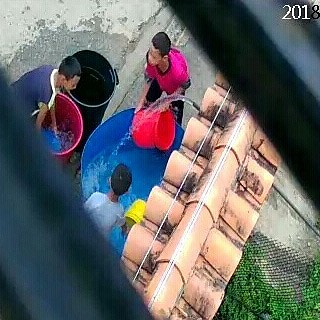“Now we know that the law is good, if one uses it lawfully, understanding this, that the law is not laid down for the just but for the lawless and disobedient, for the ungodly and sinners, for the unholy and profane, for those who strike their fathers and mothers, for murderers, the sexually immoral, men who practice homosexuality, enslavers, liars, perjurers, and whatever else is contrary to sound doctrine, in accordance with the glorious gospel of the blessed God with which I have been entrusted.” (1 Timothy 1:8-10 ESV)
Obedience to the moral law does not win for us salvation, although the law is God’s will for how people should live. The law serves to make us conscious of our sin and need for a Savior, while the gospel of Jesus Christ tells us of that Savior and brings to the repentant sinner the forgiveness of sins and the promise of eternal life. For those who have been reconciled to God in Christ, the law acts as a guide to how to lead a God-pleasing life, not out of fear of His wrath, but out of the love inspired by His love for us.
But for those who reject the gospel, the judgment and condemnation of the divine law remains in effect, in this world and the next. There is not only a general disposition toward evil on the part of the unregenerate, but they become guilty also of specific transgressions. St. Paul gives us a list of these in this verse from 1 Timothy.
 There is a lot in
this passage that applies to the world today, but let’s focus on
the word, ἀνδραποδισταῖς (andrapodistais). The King
James Bible translates this in a literal fashion as “menstealers”.
Some more recent translations render it as “kidnappers”, while
the English Standard Version quoted above, and others say “enslavers”
or “slave traders”. All of these are consistent with the original
understanding as all who exploit other men and women for their own
selfish ends, but especially such as abduct girls and boys for the
purpose of selling them into slavery.
There is a lot in
this passage that applies to the world today, but let’s focus on
the word, ἀνδραποδισταῖς (andrapodistais). The King
James Bible translates this in a literal fashion as “menstealers”.
Some more recent translations render it as “kidnappers”, while
the English Standard Version quoted above, and others say “enslavers”
or “slave traders”. All of these are consistent with the original
understanding as all who exploit other men and women for their own
selfish ends, but especially such as abduct girls and boys for the
purpose of selling them into slavery.
This understanding is close to the definitions provided to us by Debby Suchyta from 5 Stones.
- Human trafficking: The recruitment, harboring, transporting, or obtaining of a person for the purpose of labor, services, or commercial sex acts through the use of force, fraud, or coercion.
 Luz Maria and I
participated in three ZOOM conferences with Debby Suchyta, Nury de
Milian from LeadaChild,
the LeadaChild Venezuela committee, and deaconesses and teachers from
several countries where LeadaChild educational projects are located.
The conferences took place September 7, 9, and 10, 2022.
Luz Maria and I
participated in three ZOOM conferences with Debby Suchyta, Nury de
Milian from LeadaChild,
the LeadaChild Venezuela committee, and deaconesses and teachers from
several countries where LeadaChild educational projects are located.
The conferences took place September 7, 9, and 10, 2022.
Debbie Suchyta worked for 14 years with MOST Ministries, sending groups of short-term missionaries to Venezuela and other countries in Latin America. In 2017, she began her work with 5 Stones, a non-profit organization which focuses its attention on preparing personnel who work directly with children and young people, to make them aware of the dangers of sex trafficking and ways to protect themselves.
We learned to identify “red flags” of children and youth being groomed for sexual exploitation, which, if recognized in time, may help prevent the exploitation of young people:
• Fatigue/sleeping in class
• Isolation: Withdrawal from family, friends and school activities
• Absence from school
• Physical injuries/bruises
• Abuse of alcohol or drugs
• Increase in expensive items the young person cannot afford.
 Children and youth
most vulnerable to sex traffickers are most likely to live in
single-parent homes or abusive home environments, living in poverty
and heavy alcohol and drug usage. When Luz Maria and I started
Epiphany Lutheran Mission nearly 20 years ago, we knew many in the
surrounding community fit this description. One big change since then
has been the increased availability of cell phones with Internet
access. When I came to Venezuela, getting online meant going to a
cybercafe where there was at least some supervision and some limits
could be placed on online activity. Now getting online means getting
your hands on a cellphone, which is easy to do, while adult
monitoring is difficult.
Children and youth
most vulnerable to sex traffickers are most likely to live in
single-parent homes or abusive home environments, living in poverty
and heavy alcohol and drug usage. When Luz Maria and I started
Epiphany Lutheran Mission nearly 20 years ago, we knew many in the
surrounding community fit this description. One big change since then
has been the increased availability of cell phones with Internet
access. When I came to Venezuela, getting online meant going to a
cybercafe where there was at least some supervision and some limits
could be placed on online activity. Now getting online means getting
your hands on a cellphone, which is easy to do, while adult
monitoring is difficult.
Now sexual predators can access victims through social networking sites like Snapchat, Facebook or WhatsApp, often posing as children or young people like themselves. Sexting (the publication of inappropriate photos) has become a rite of passage and traffickers trick young adults who into sharing messages or photos of other friends. The photos can be used for blackmail later.
Young people also can be lured into running away from with promises of employment or a better life elsewhere. With current economic conditions, young Venezuelans are more likely to fall for this approach. According to the Borgen Project, in June 2019, the story of two shipwrecks near Trinidad and Tobago brought the dark underbelly of Venezuelan sex trafficking to light. In both cases, captains of the boats concealed the fact that the women and children were headed to Trinidad and Tobago to work as prostitutes. Survivors of the second shipwreck testified that the traffickers charged $250 and $500 to everyone aboard the boat headed for Trinidad and Tobago.
An analysis by CARE, a leading humanitarian organization, performed at two checkpoints along the Venezuela-Colombia border found troubling indications of sexual violence perpetrated against women and girls at informal border crossings. In particular, women and teenage girls face extremely high risk – not only of abuse – but also being forced to resort to transactional sex as a means of survival. Additionally, Venezuelan migrants are easy targets for trafficking and exploitation, as they often lack official documentation and have limited awareness of their rights.
According to a report released by the U.S. Department of State, international networks involved in trafficking Venezuelans have expanded to at least 19 countries. The document indicates that in 2020 authorities found cases of Venezuelan migrant trafficking and exploitation in Aruba, the Bahamas, Bolivia, Brazil, Colombia, Costa Rica, Curaçao, the Dominican Republic, Ecuador, Spain, Guyana, Haiti, Iceland, Macao, Mexico, Panama, Peru, Suriname, and Trinidad and Tobago.
Another year of in-person classesOn October 3, 2022, we opened our preschool for, God willing, a full year of in-person classes. Venezuela began a process of gradual return to face-to-face classes last October 25, which was accompanied by the COVID-19 vaccination plan for Venezuelan adolescents over 12 years of age. Later, on November 8, the Bolivarian Government used the Cuban Soberana II vaccine to immunize children between 2 and 11 years of age. On March 17, 2022, the Minister of Health, Magaly Gutiérrez announced that 61 percent of the Venezuelan child population had already been immunized and the authorities will initiate an intensive campaign in schools to increase the current percentage.
In 2003, Luz Maria enrolled her home in Barinas in the NutriNiño project sponsored by the Fundación del Niño (Child’s Foundation), a non-profit organization which received state funding. The project began as a way of providing nutritionally balanced meals for children in poverty-stricken neighborhoods in homes that passed health inspection requirements. Later the foundation paid certified teachers to conduct preschool classes in these homes. This was the beginning of our preschool.
 As the years passed,
the NutriNiño project was phased out, but our preschool remained in
operation. The Ministry of Education assumed a more direct role in
the inspection and accreditation of our preschool. In 2016, we
incorporated our mission as a non-profit organization under
Venezuelan law, in order to maintain its status as a Christian school
in the face of changing government regulations. There is still strong
cultural opposition to the “ideología de género” (gender
ideology), a broad term encompassing legalization of abortion as well
as legal standing for same-sex relationships and transgenderism.
However, activism in favor of these goals is on the rise. We will
need to renew our non-profit organization charter as the people named
as our board of directors have left the country, with the exceptions
of Luz Maria and myself.
As the years passed,
the NutriNiño project was phased out, but our preschool remained in
operation. The Ministry of Education assumed a more direct role in
the inspection and accreditation of our preschool. In 2016, we
incorporated our mission as a non-profit organization under
Venezuelan law, in order to maintain its status as a Christian school
in the face of changing government regulations. There is still strong
cultural opposition to the “ideología de género” (gender
ideology), a broad term encompassing legalization of abortion as well
as legal standing for same-sex relationships and transgenderism.
However, activism in favor of these goals is on the rise. We will
need to renew our non-profit organization charter as the people named
as our board of directors have left the country, with the exceptions
of Luz Maria and myself.
Hurricanes bypass Venezuela, but heavy rains claim lives
Hurricane season in the Caribbean lasts between June and November, usually peaking in mid-September. This was the first year since 1997 that no named storms formed during the month of August. However, August brought heavy rains and flooding to Venezuela, resulting in property damage, power outages and loss of life.
 Heavy
rains in August destroyed over 8,000 homes and forced about
35,600 citizens to refuge in shelters across Venezuela. Besides
affecting 116 roads and ten bridges, floods and landslides damaged
power stations in the states of Amazonas, Barinas, Bolivar, Delta
Amacuro, Merida, Monagas, Tachira, and Zulia. At least 15
people died in western Venezuela as a result of the torrential
August rains. We experienced extended power outages in La Caramuca,
but no flooding or landslides.
Heavy
rains in August destroyed over 8,000 homes and forced about
35,600 citizens to refuge in shelters across Venezuela. Besides
affecting 116 roads and ten bridges, floods and landslides damaged
power stations in the states of Amazonas, Barinas, Bolivar, Delta
Amacuro, Merida, Monagas, Tachira, and Zulia. At least 15
people died in western Venezuela as a result of the torrential
August rains. We experienced extended power outages in La Caramuca,
but no flooding or landslides.
More storms and the flooding of a river on September 26 left eight dead and two missing from a Methodist church retreat in the western state of Tachira. Some of the church members were bathing in the river when the rains came down, suddenly raising the water level and washing them away. Four of the dead were between 12 and 17 years old, according to police records obtained by AFP news agency. The ages of the rest of the victims ranged from 19 to 25.The search and recovery of the bodies was difficult due to the geographic characteristics of this mountainous region
The tropical storm that became Fiona, the first major hurricane of 2022, bypassed Venezuela, moving north to wreak havoc, particularly in Puerto Rico. Fiona hit Puerto Rico on September 18, about five years after Hurricane Maria devastated the island. Reuters reported an estimated 120,000 homes and businesses were still without power in Puerto Rico two weeks after Hurricane Fiona caused an island-wide outage for its 3.3 million people. After hitting Puerto Rico and the Dominican Republic, Fiona turned north and slammed into eastern Canada on September 24, leaving more than a third of Nova Scotia without power.
 On the other hand,
Ian, the second major hurricane of 2022, moved into the Caribbean Sea
as a tropical wave and brought wind and heavy rains to the
northern coasts of Venezuela and Colombia on September 21 and 22.
As a Category 4 Atlantic hurricane, Ian caused widespread damage
across western
Cuba and the southeast United States, especially the states of
Florida
and South
Carolina.
On the other hand,
Ian, the second major hurricane of 2022, moved into the Caribbean Sea
as a tropical wave and brought wind and heavy rains to the
northern coasts of Venezuela and Colombia on September 21 and 22.
As a Category 4 Atlantic hurricane, Ian caused widespread damage
across western
Cuba and the southeast United States, especially the states of
Florida
and South
Carolina.
In our congregation prayers for Sunday, September 18, we included the people of Puerto Rico and the LCMS missionary team there, which includes Pastor Arturo Maita, a native of Venezuela; his wife, Ruth; Pastor James Neuendorf and his wife, Christel; Pastor Adam Lehman and his wife, Christine, and Ashley Lehr. The missionaries reported on September 23, "The rain was strong and the most damage was caused as a result of flooding. We thank God that already just a few days later, the water has subsided significantly. The church members and visitors of both congregations are all safe and well, although some appear to have damaged homes and property, and all are currently living without water and electricity which can be draining and there is still clean up that needs to be done. We pray that power and water are restored quickly. Both congregations have already opened their facilities to the community to charge their phones, enjoy some air-conditioning, and spend time together. The activity schedule that has been in both congregations is opening wonderful opportunities to bring friends and community into our facilities. Please continue to keep us in your prayers as we assess the situation more fully and find more ways to share the love of Christ with the people of Puerto Rico."
A queen is taken, a bishop advances
Our national church, the Lutheran Church of Venezuela (Iglesia Luterana de Venezuela or ILV), like the Lutheran Church – Missouri Synod, is a member of the International Lutheran Council (ILC) is a worldwide association of confessional Lutheran church bodies. Pastor Eduardo Flores, president of the ILV, attended the 2022 ILC World Conference from September 13 to 16 in Kisumu, Kenya.
 |
| Graves of British governors, Trinidad Tobago |
Several other nations in which ILC churches are present also have ties to the monarchy through the Commonwealth, an association of 56 nations, most of are former British colonies. In addition to 16 “realms” with the British monarch as head of state (although each with their own prime ministers), five other member states are monarchies with their own individual monarchs, and the rest are republics. Commonwealth nations have a combined population of 2.4 billion people, almost a third of the world population, on all continents. Of the thirteen Commonwealth member states in the Americas, all but Canada are located within the Caribbean region, and all but Belize and Guyana are islands.
 |
| St. Luke's Lutheran Church, Ottawa. |
We also prayed for a safe journey for our president, Pastor Eduardo (he returned safely). Bishop Juhana Pohjola of the Evangelical Lutheran Mission Diocese of Finland (ELMDF) on September 14, 2022, was elected the ILC’s new chairman without opposition. Bishop Pohjola was catapulted to worldwide media attention in 2021 after Finland’s Prosecutor General charged him and a Finnish M.P., Dr. Päivi Räsänen, with hate crimes for the 2004 publication of a booklet which articulates historic Christian teaching on human sexuality. While the two were subsequently acquitted in early 2022, Finland’s Prosecutor General has since appealed, meaning the case is not yet over.
The ILC also elected Alceu Alton Figur of the Lutheran Church of Paraguay to its board of directors as world region representative for Latin America. The ILC closed Holy Cross Day with a service of vespers. Geraldo Schüler of the Evangelical Lutheran Church of Brazil (IELB) preached on the theology of the cross.
On the afternoon of September 13, 2022, the ILC unanimously voted to accept two church bodies as full members and one as an associate member. The Christian Evangelical Lutheran Church of Bolivia (Iglesia Cristiana Evangélica Luterana de Bolivia – ICEL) was welcomed as a full member. The ICEL’s history dates back to 1978 when Norwegian missions to the country began. The church was officially founded in 1997. The ICEL is led by President Limberth Fernandez Coronado.
Also accepted as a full member was the Evangelical Lutheran Church of Latvia (Latvijas Evaņģēliski luteriskā Baznīca – LELB). Lutheranism in Latvia traces its history back five hundred years to when the capital of Riga adopted Lutheranism in 1522. The Latvian church faced severe persecution during the 20th century under the Communist regime but has enjoyed religious freedom again since 1988.
During its afternoon session, the ILC also voted to accept the Evangelical Lutheran Church of Panama (Iglesia Evangélica Luterana de Panamá – IELPA) as a new associate member. The IELPA arose out of mission work of The Lutheran Church—Missouri Synod to Panama which began in 1941. It has previously attended other ILC events in the past as a guest. The church in Panama is led by Pastor Patricio Mora Reyes.
 Luz Maria’s
mother celebrates 92 years
Luz Maria’s
mother celebrates 92 years
I am happy to report that Carmen Rivero, Luz Maria’s mother, is recovering from her double-fractured hip and celebrated her 92nd birthday on September 21. People here often say, “Thank God for another year of life”. That fits well with Luke 7:11-17, our sermon text for this past Sunday, October 2. Jesus revived the widow of Nain’s son out of compassion for his widowed mother. But He did not spare His own mother (who was probably widowed, although the New Testament writers do not say what happened to Joseph) when He was dying on the cross. That was because God had something better in mind than a few more years of earthly life for Jesus. Three days later He was not simply revived, but resurrected for all eternity, and therefore we will be, too. God is compassionate, but He always has the best in mind for us, as the epistle (Ephesians 3:13-21) says, “Him who is able to do exceedingly abundantly above all that we ask or think”.











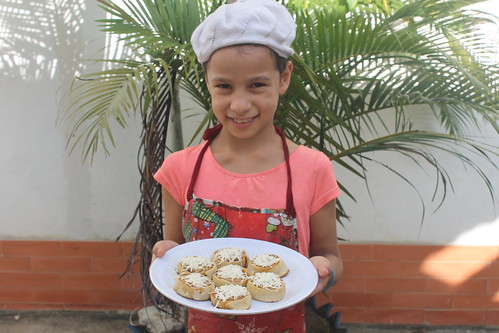

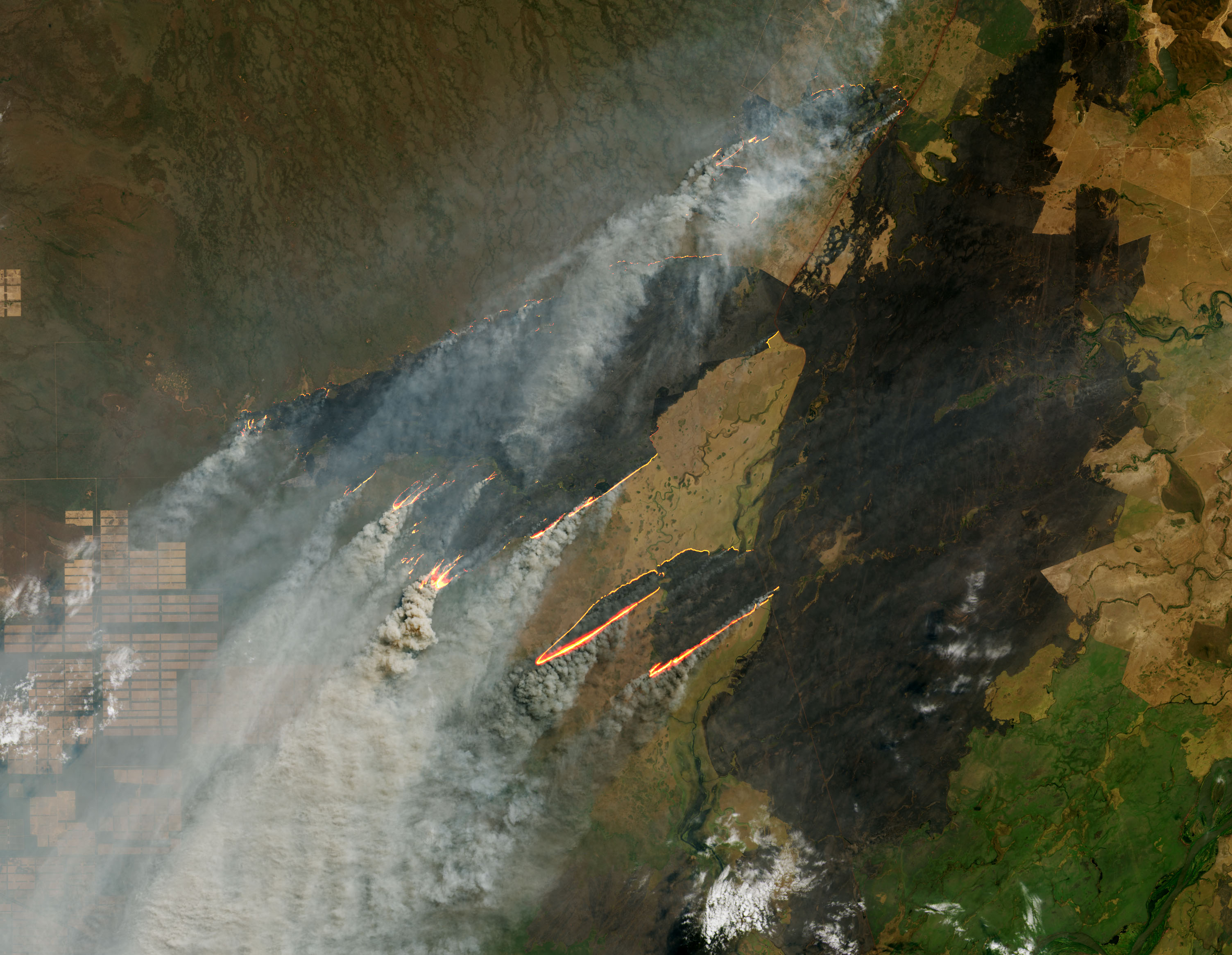








![Internet Archive Book Images [No restrictions] Internet Archive Book Images [No restrictions]](https://upload.wikimedia.org/wikipedia/commons/d/d2/Brehm's_Life_of_animals_-_a_complete_natural_history_for_popular_home_instruction_and_for_the_use_of_schools._Mammalia_(1896)_(20419767671).jpg)






